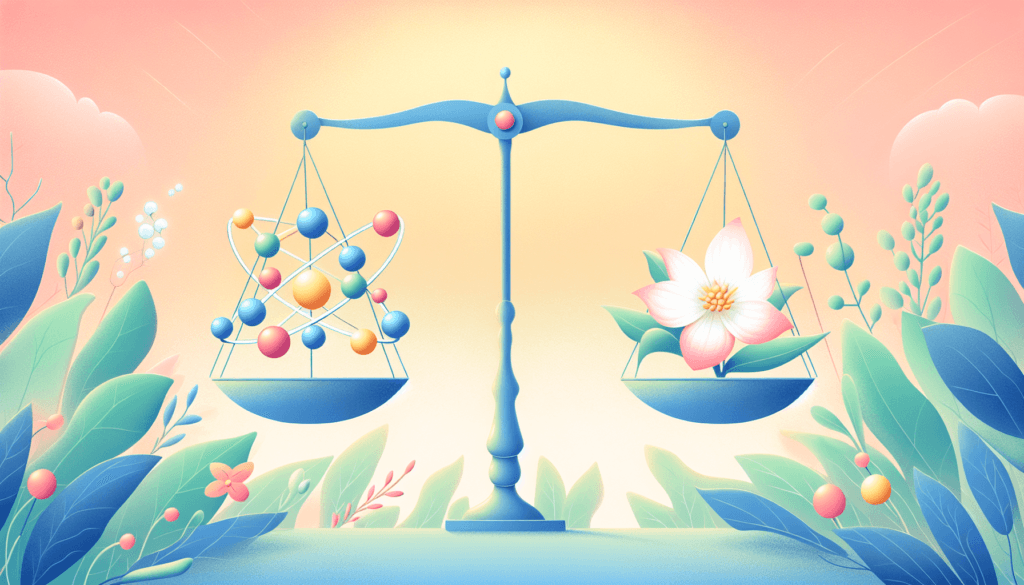Have you ever wondered what makes your body tick every day? It’s fascinating how various elements, often invisible and unnoticed, play their parts to carry you through each moment of your life. One of these invisible forces is hormones, the body’s chemical messengers. You might have heard their name tossed around, typically in connection with mood swings or puberty. But their role is much more intricate and vital than you’d imagine. Through this friendly guide, let’s unravel the mysteries of hormones and understand why they are central to our existence.
What Exactly Are Hormones?
Hormones are chemical substances produced by glands in the endocrine system. They travel through your bloodstream, entering tissues and organs to regulate your body’s processes. Think of hormones as tiny messengers delivering instructions from one part of your body to another. These instructions help in managing how the body grows, develops, and functions.
How Do Hormones Work?
Table of Contents
Imagine you’re playing a game of telephone. At each stage, the message is whispered from one player to the next. Similarly, hormones send information in the form of biochemical signals. When released by an endocrine gland, a hormone travels through the bloodstream to target cells equipped with specific receptors designed to recognize and respond to it. It’s like a key fitting into a lock, activating certain functions or shut down processes as needed.
Why Are Hormones Important?
Hormones orchestrate everything from growth and metabolism to mood and sleep. Without hormones, your body wouldn’t know how to operate efficiently. They ensure that everything runs smoothly, like a conductor directing an orchestra. A slight imbalance can disrupt many physiological processes, leading to health issues and affecting overall well-being.
The Major Players: An Overview of Key Hormones
Understanding some of the primary hormones can help you appreciate their roles in daily life. Below, we’ll break down the major hormones, explaining their functions and significance.
Insulin
Insulin is vital for regulating glucose levels in your blood. Produced by the pancreas, it controls how your body stores and uses sugar and fat. If your body can’t produce enough insulin or becomes resistant to it, it may lead to diabetes, which requires careful management.
Cortisol
Often branded as the ‘stress hormone,’ cortisol plays a crucial role in how your body reacts to stress. Beyond stress management, it controls metabolism and inflammation, influencing how your body deals with threats or injuries.
Thyroid Hormones
The thyroid gland produces hormones that regulate your metabolic rate, heart, and digestive functions, among others. Essentially, they determine how quickly your body uses energy and synthesizes proteins.
Estrogen and Testosterone
These are primary sex hormones, playing pivotal roles in reproductive processes and secondary sex characteristics. While estrogen is more prevalent in females and testosterone in males, both are present in every gender, with carefully balanced functions affecting everything from mood to bone maintenance.
Adrenaline
Adrenaline is crucial for your body’s fight-or-flight response, preparing your muscles for sudden exertion. It increases your heart rate and blood flow to muscles, heightening your alertness in moments of stress.

Hormonal Balance: The Key to Well-being
Maintaining a balance of hormones is critical for good health. The right balance can make you feel energetic, happy, and ready to tackle daily challenges, while an imbalance may cause fatigue, mood swings, or sleep disorders.
Signs of Hormonal Imbalance
Sometimes, subtle changes in your body can indicate hormonal imbalances. Signs include unexplained weight gain or loss, mood fluctuations, fatigue, or sleep disturbances. These symptoms can seem vague but addressing them early can lead to more profound health insights.
Causes of Hormonal Imbalance
Various factors can tip your hormones off-balance, including stress, poor diet, lack of physical activity, or medical conditions. Understanding these triggers can help you mitigate their effects and steer your hormones back to balance.
Supporting Your Hormonal Health
Now that you recognize the importance of a hormonal balance, the next step is maintaining or restoring this balance. Lifestyle choices can significantly influence your hormonal health.
Nutrition and Hormones
A balanced diet rich in vitamins and minerals can support endocrine function. Foods rich in healthy fats, proteins, and complex carbohydrates ensure that your body maintains optimal hormone production. Think of leafy greens, fish, nuts, seeds, and whole grains.
Regular Exercise
Staying active is not just good for your heart but also your hormones. Exercise helps regulate insulin levels, boost mood-enhancing hormones like endorphins, and support thyroid function. A mix of cardio, strength, and flexibility exercises provides comprehensive benefits.
Stress Management Techniques
Since stress affects hormone levels, managing stress is crucial. Practices such as mindfulness, meditation, yoga, and deep-breathing exercises can foster a calm state, keeping stress hormones like cortisol in check.
Sleep and Hormones
Adequate sleep is where your body regenerates and balances its hormonal levels. Aim for 7-9 hours of quality sleep to recharge your body and mind, maintain a regular sleep schedule, and create a conducive sleep environment.

Hormones Through Different Life Stages
Your hormonal landscape changes as you age, which can significantly affect how you feel. Understanding these shifts helps you anticipate changes and adapt to them.
Childhood to Adolescence
During childhood, growth hormones are the stars. They ensure you develop and grow at a suitable pace. Adolescence heralds puberty, a time when sex hormones surge and drive the development of secondary sexual characteristics.
Adulthood
In adulthood, your hormonal profile stabilizes, playing a role in fertility, metabolism, and emotional regulation. It’s a time to focus on maintaining hormone balance through lifestyle choices and taking proactive health measures.
Menopause and Andropause
With age, you may experience menopause (for females) or andropause (for males). These life phases come with declines in estrogen and testosterone, respectively. Many experience symptoms like hot flashes or mood swings, where lifestyle modifications and medical advice can help.
The Interplay Between Hormones and Mental Health
The connection between hormones and mental health runs deep. Hormones influence brain chemicals that affect mood, emotional regulation, and cognitive functioning. For instance, imbalances in thyroid hormones can lead to mood disorders like depression or anxiety.
Hormones and Mood Swings
Hormones like estrogen and progesterone influence neurotransmitters like serotonin, often dubbed the ‘feel-good’ hormone. Imbalances can lead to mood swings, emphasizing the need for stable hormonal levels to support mental well-being.
Addressing Hormonal Mental Health Issues
If you suspect hormones are affecting your mental health, seeking professional help is advisable. Therapy or counseling, often combined with hormonal treatment, can provide comprehensive support.
Future of Hormone Research
As science progresses, the understanding of hormones continues to evolve. New research sheds light on previously unknown pathways and interactions, offering hope for better management of hormonal conditions.
Hormones in Medical Innovation
Innovations like hormone replacement therapy (HRT) and personalized medicine are opening new avenues for treating hormonal disorders. These advancements hold the promise of more effective and tailored treatments for individuals with hormonal imbalances.
The Impact of Environmental Changes
Environmental factors, such as exposure to endocrine disruptors in pollutants, are becoming an area of intense study. They highlight the need for global efforts in reducing environmental health risks, ensuring a healthier planet for future generations.
Conclusion
Understanding hormones might feel like unlocking a secret code to how your body works. Their influence is profound and multifaceted, impacting every aspect of your life. By being informed about your hormonal health, you’re better equipped to make choices that enhance your well-being. Balance is key, and with the right knowledge, you can master your body’s symphony for a harmonious life. Remember, your well-being is a journey, and hormones are just one part of the fascinating adventure of living healthily and happily.





